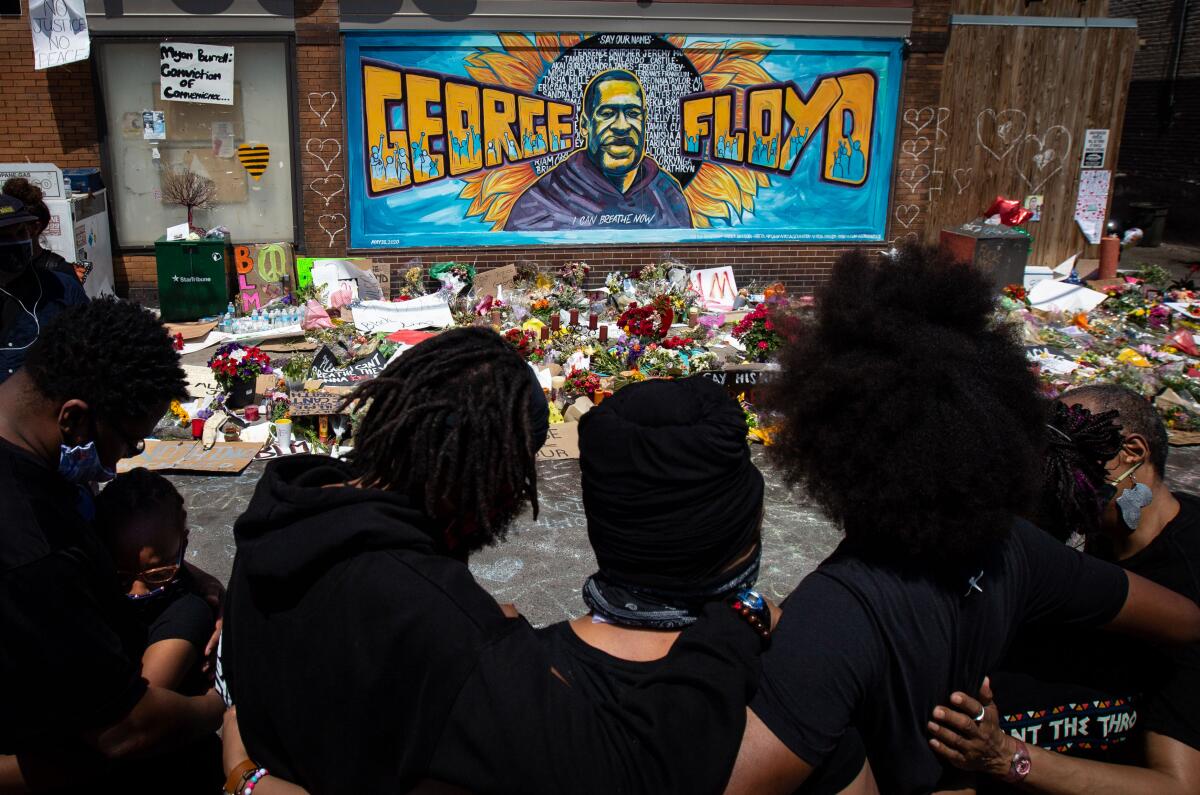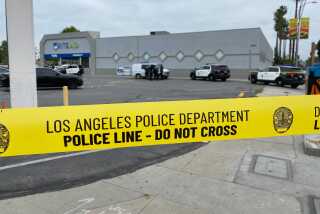Why do bad police stay on the streets? Officers are shielded from meaningful discipline

- Share via
This year’s protests in the wake of George Floyd’s killing highlighted a very real problem: Too many people, especially people of color, are killed at the hands of the police. But many of the remedies being proposed won’t actually solve the problem.
Take the calls for more prosecution of police officers. There are many good reasons to prosecute those who use excessive force. But that alone won’t begin to solve the problem. The American criminal justice system is designed to make it extremely difficult to convict officers operating under color of authority.
In Garner vs. Tennessee, the Supreme Court ruled that if an officer has an objectively reasonable belief that a suspect poses an imminent threat to officers or others, deadly force is justifiable. Under this standard, police killings have usually been found to be justified by juries. Only about one-third of those officers charged after a police killing have been convicted, which has made prosecutors leery about bringing such cases.
That’s understandable. Prosecutions that result in acquittals are counterproductive, leading to further distrust of the criminal justice system — and, potentially, to further civil unrest.
Civil lawsuits also won’t solve the problem of excessive force, though they have brought some financial relief to families of those killed by police. Federal law allows recovery of damages against a police officer responsible for killing someone if it can be demonstrated that the officer did not have an objectively reasonable belief that the deceased person threatened the officer or others with serious bodily injury. In a civil case, the family member need only prove that this standard was violated by a “preponderance of the evidence,” not by the higher standard of “beyond reasonable doubt” required in criminal cases.
But, while lawsuits can provide family members with compensation, monetary judgments cannot bring back loved ones — and they do almost nothing to disincentivize future uses of excessive force. Why? Because it is the city or county that pays the settlement or judgment, not the police officer who shot the deceased.
So, is the only answer then to defund police departments as some activists advocate?
That might satisfy an urge to punish the police, but it does not provide a viable long-term solution. Instead, communities would be exposed to more crime and violence, with fewer police to protect them. Defunding the police is more likely to exacerbate the problem than solve it.
There is, however, something that would dramatically reduce the number of people killed by the police: holding police officers accountable for their actions.
True police reform requires examining why officers who have used excessive force remain in their jobs. The main reason for this is that the discipline system in many departments is badly broken. Neither management nor internal affairs units have prioritized these issues, and police unions have made it exceedingly difficult to terminate an officer who has used excessive force, or who has failed to intervene, lied, stayed silent or exhibited racial bias. Each of these, if proved, should result in termination, but in practice that seldom occurs.
It is worth noting that, at the federal level, FBI agents are exempted from the Civil Service rules. When discipline is meted out, an agent can appeal within the department, but can’t go to the Civil Service Commission or to an arbitrator under a collective bargaining agreement.
Like FBI agents, police officers are given the power of life and death over citizens, and they are the front line when it comes to enforcing the laws justly. However, officers who have been accused of inappropriate behavior are often able to delay or have their discipline reduced due to a system that exalts job protections for police. Continuing these extraordinary job protections is untenable, and unions representing police officers should have no role in internal investigations or discipline.
The most meaningful reform, by far, would be to change state laws and collective bargaining agreements that make it difficult to hold police officers accountable. Doing so would make it far easier to rid the system of those who should not be police officers — and that would in turn help foster a culture of accountability.
Robert Bonner is a former federal district judge and United States attorney. He is currently a member of the Civilian Oversight Commission for the Los Angeles County Sheriff’s Department.
More to Read
A cure for the common opinion
Get thought-provoking perspectives with our weekly newsletter.
You may occasionally receive promotional content from the Los Angeles Times.









